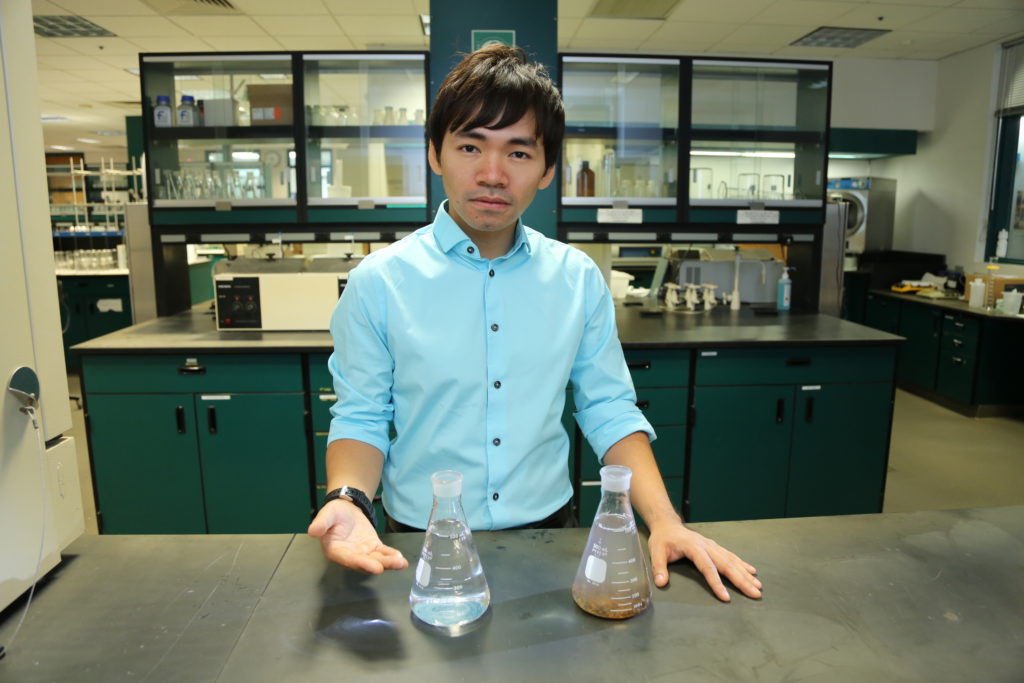
Marc Oliver Quijano, Lab Manager, Suez/West Basin Municipal Water District
“I studied Biology in college,” he says, “and conducted research on lizard population genetics, determining how human overpopulation affects the environment. An internship at West Basin Municipal Water District’s water recycling facilities and good mentors sparked a new career. I just kept going and Suez presented me with many opportunities to expand.”
Expand he has, from intern, to lab tech, to chemist, supervisor, and now lab manager—in just 11 years. During this time he also attained a master’s degree in Environmental Engineering. “He is on several Suez national and international technical committees,” points out his nominator Seho Chang. “Plus, he is an active member of the Standard Methods Committee, a founding member of our corporate Safe Water Assurance Team, and is a respected contributor in our company, with expertise in regulatory issues, water quality, lab automation and data management.” Chang applauds Quijano’s ability to connect with others in the water industry, and encouraging others to join the profession.
Quijano sees many areas of the water industry which need to evolve and he has been instrumental in several, collaborating with researchers, engineers and operators. He is also advocating wider use of DNA and molecular methods in water testing. His team implemented electronic field data collection which replaced paper forms and made data collection for Operations easier and more accurate. “We have too much paper in our industry,” he says.
He recognizes the need to educate the public about water. “In California, the drought may be over but people forget it’s cyclical. Water is our greatest resource, yet we continue to talk about different kinds of water– drinking water, and wastewater. It’s really the same water, since dinosaurs walked the earth. We need to educate the public that direct potable reuse is the path forward.”
Young people are the key. In his spare time, Quijano volunteers at state science fairs, universities, and to the United Friends for Children where he is a regular speaker on water, and the need to pursue higher education in the Sciences. “They’re going to replace us,” he says of the youth. “We have to plant the seeds of environmental knowledge early.”
There’s much to be done, in Quijano’s view, and that’s the reason he’s active on so many fronts “There needs to be serious collaboration and a long-term vision. We need to innovate, and work across lines to truly solve this ongoing water crisis. It must be a unified effort. “
Despite the challenges, he remains optimistic. “I believe we will get there,” he says, “because we must, our lives depend on it.”